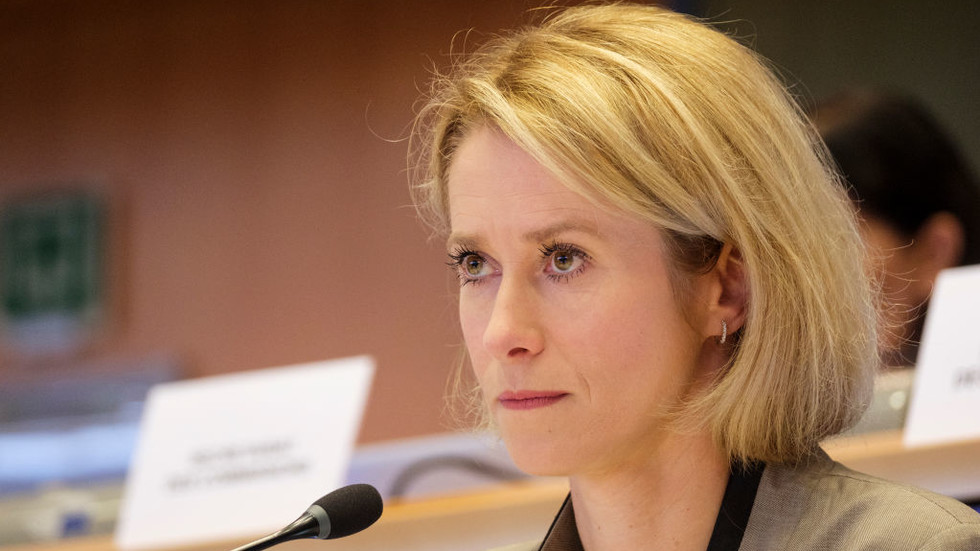Newly appointed European Union foreign policy chief Kaja Kallas is facing a complex political landscape following Georgia’s suspension of its EU accession talks and the government’s crackdown on widespread pro-EU protests in Tbilisi. The unrest erupted after Prime Minister Irakli Kobakhidze announced the delay of accession discussions until 2028, citing what he described as “constant blackmail and manipulation” from the EU regarding Georgia’s domestic affairs. Following the announcement, protests escalated, resulting in violent clashes between demonstrators and riot police, who used tear gas and water cannons to disperse crowds. Kallas voiced her support for the peaceful protestors and condemned the violence against them, urging the Georgian government to respect the will of its citizens, indicating that the situation could have serious implications for EU-Georgia relations.
In response to the deteriorating situation, Kallas mentioned that the EU is considering imposing economic sanctions as one of several measures to address the potential fallout from Georgia’s actions. During her comments, she highlighted that a wide array of options is available to the EU, though any decisions would require consensus among member states. Kallas’s remarks came after Georgia’s ruling party, Georgian Dream, called for stabilizing relations with both the EU and Russia. However, the escalation of civil unrest in Georgia has drawn criticism from pro-Western opposition parties and Georgian president Salome Zourabichvili, who has refused to recognize the legitimacy of the recent parliamentary elections.
Tensions escalated as PM Kobakhidze’s accusations against the EU, claiming that the unrest was orchestrated by Western politicians, echoed sentiments reminiscent of past political upheavals, like Ukraine’s Maidan revolution. Kobakhidze alleged that the EU had threatened him in regard to a contentious law mandating NGOs that receive significant foreign funding to register as foreign agents, which further exacerbated domestic tensions. The accusations reflect a broader narrative in which the Georgian government views Western influence as a destabilizing factor in its politics, leading to increased polarization within the country.
Kaja Kallas’s entry into the role of EU foreign policy chief comes at a time of heightened geopolitical tensions, particularly surrounding Russia’s influence in Eastern Europe. Formerly the Prime Minister of Estonia, she is recognized for her staunch anti-Russian stance and has been a strong advocate for the imposition of sanctions against Moscow. Under her leadership, Estonia took significant steps to utilize frozen Russian assets as compensation for Ukraine, marking a shift in how some EU countries are positioning themselves against Russian aggression. Kallas’s assertive foreign policy approach signals a potential for increased EU involvement in regional matters, including the situation in Georgia.
Complicating matters further is the impending end of President Zourabichvili’s mandate, which concludes this month. Her refusal to step down until elections are called adds another layer of uncertainty to Georgia’s political stability. Protests calling for her resignation have intensified, and through her vocal opposition to the government’s decision to freeze EU talks, she has become a central figure in the pro-Western movement in Georgia. The situation remains precarious as Kallas and EU officials contemplate how best to engage with Georgia in light of the government’s repudiation of EU integration initiatives.
In summary, the current political climate in Georgia poses significant challenges for both the EU and the Georgian government. Kaja Kallas’s initial assessments indicate a willingness within the EU to consider sanctions and other measures to underscore the importance of respecting democratic protests and the aspirations of the Georgian people. As tensions escalate, finding common ground in EU-Georgia relations will prove critical, as the partnership stands at a crossroads, with potential ramifications for both domestic stability in Georgia and the EU’s influence in the region amid a backdrop of Russian aggression. Kallas’s strategies in steering these relations in the coming months will be pivotal in defining EU engagement in Eastern Europe during this tumultuous period.

